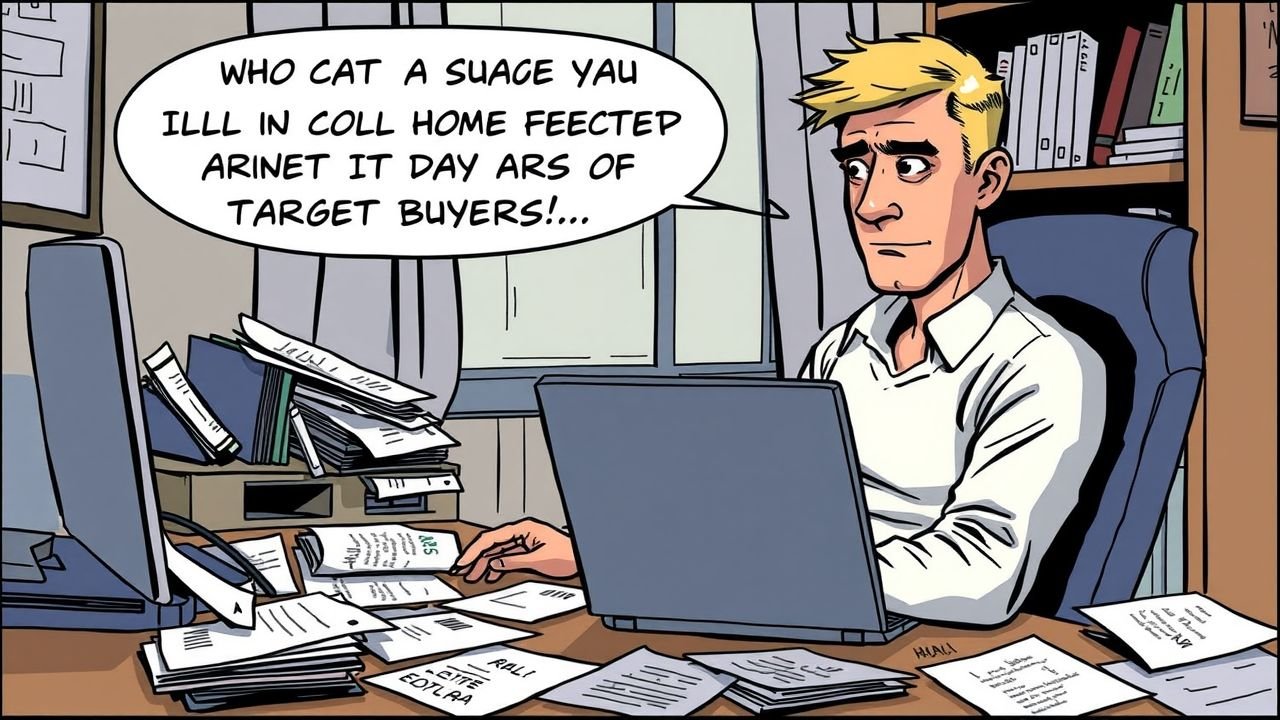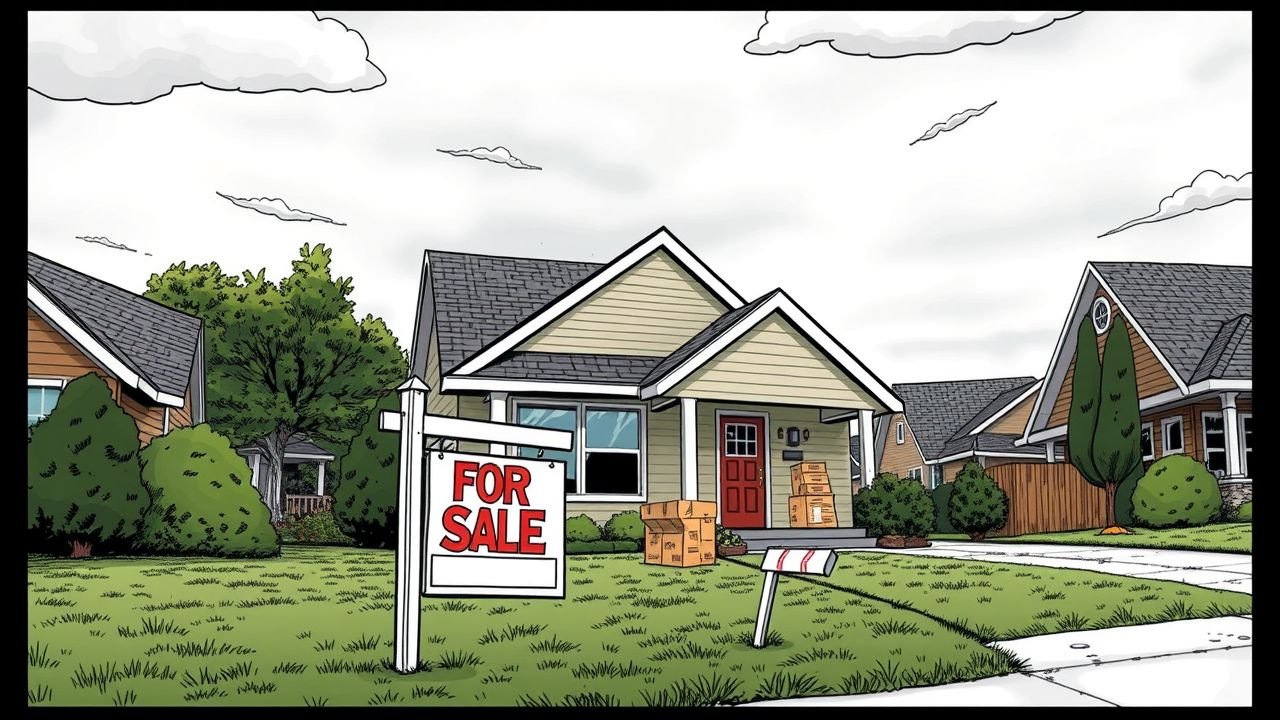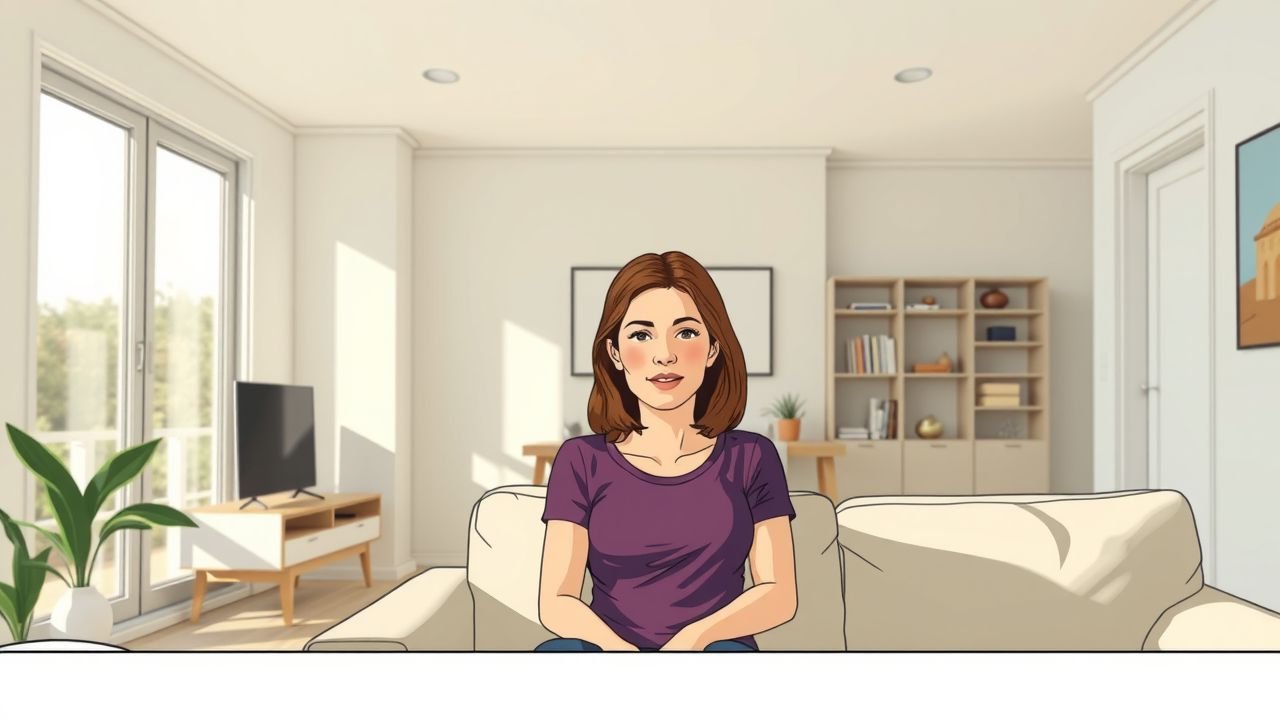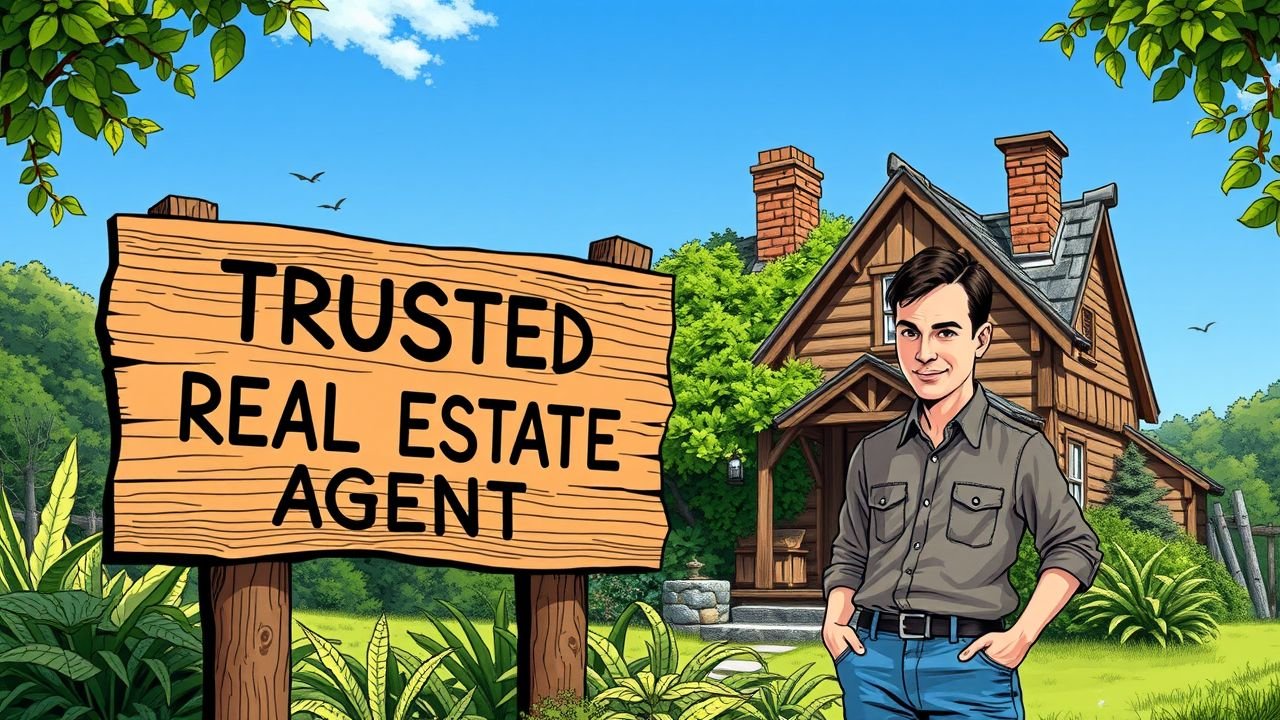Are you ready to sell your home but unsure how to navigate the ever-changing real estate market? You’re not alone. Many homeowners struggle with developing effective home selling strategies that attract serious buyers and secure the best price for their property.
According to the National Association of Realtors, the average home stays on the market for 24 days before going under contract. 3 But with the right approach, you can sell your house faster and for more money. 1 This article will provide you with proven tips and techniques to master the art of home selling in any market condition. Get ready to learn how to prepare your home, price it strategically, and market it effectively to potential buyers.
Let’s get started! 2
Key Takeaways
- Understand your local real estate market by analyzing recent sales data, median prices, and days on market. Identify your target buyers and highlight your home’s features that appeal to them. 97% of buyers use the internet for home searches before visiting properties in person.
- Prepare your home for sale by decluttering, depersonalizing, and making essential repairs. Boost curb appeal through landscaping improvements, as 78% of real estate professionals link poor landscaping to diminished home values. Homes with professional photos receive 61% more views than those with average photos.
- Price your home strategically by conducting a comparative market analysis (CMA) to determine fair market value. Avoid overpricing, which deters buyers, or underpricing, which leaves money on the table. Be flexible with price adjustments based on market response to stay competitive.
- Market your home effectively using professional photography, video tours, and compelling online listings. Leverage social media platforms and popular real estate websites like Zillow and Realtor.com to attract potential buyers. Listings with virtual tours have a 4.2% higher closing rate.
- Work with a trusted real estate agent who has local expertise and strong negotiation skills. 88% of sellers use agents to sell their homes. Avoid dual agency conflicts by choosing an agent who solely represents your interests as the seller.

Mastering Effective Home Selling Strategies For Any Market!

Mastering effective home selling strategies is crucial in any market condition. You need to understand your local market trends and identify your target buyers to sell your home successfully.
Understand current market conditions
Understanding current market conditions is crucial when selling your home. Conduct thorough research to grasp the local housing market‘s pulse. Analyze recent sales data, including median prices, days on market, and price per square foot, to gauge demand and supply dynamics.
This information helps you set realistic expectations and make informed decisions throughout the selling process. 1
Identify whether you’re in a buyer’s market, with abundant inventory and lower prices, or a seller’s market, characterized by limited supply and higher prices. In a buyer’s market, you may need to price competitively and offer incentives to attract buyers.
Conversely, a seller’s market allows more flexibility in pricing and terms. Your real estate agent can provide valuable insights into local market trends, helping you navigate the complexities of selling your home successfully.
By staying attuned to market conditions, you can strategically position your property to maximize its appeal to potential buyers.
Identify your target audience
Knowing your ideal buyer is crucial when selling your home. Take time to research the demographics, preferences, and needs of potential purchasers in your area. Are they young families seeking more space, empty nesters downsizing, or professionals desiring a shorter commute? Understanding your target audience allows you to highlight the features of your property that will appeal most to them. 2
97% of home buyers use the internet for home searches before in-person visits.
Tailor your home’s listing and marketing to attract your target buyers. If you’re aiming for luxury buyers, emphasize high-end finishes and amenities. For real estate investors, focus on the potential rental income or appreciation.
First-time homebuyers may prioritize a move-in-ready home with a manageable mortgage payment. By speaking directly to your ideal buyer’s wants and needs, you’ll generate more interest and potentially secure a faster sale at a higher price point.
Leverage local market trends
To sell your home quickly and for top dollar, tap into local market trends. Key factors like neighborhood growth, amenities, and transportation infrastructure influence buyer demand in your area. 3 Stay informed about economic indicators such as employment rates, which impact the health of your local real estate market.
Your real estate agent can provide valuable insights into what’s hot in your market right now. They’ll analyze recent sales data to identify the most desirable features and price points for homes like yours.
By aligning your home’s unique selling points with current trends, you’ll attract serious buyers and maximize your sale price.
Prepare Your Home for Sale

To get top dollar for your home, declutter and depersonalize your space. This means removing personal photos, knick-knacks, and excess furniture to create a blank canvas for potential buyers.
Tackle essential repairs like fixing leaky faucets, patching holes in walls, and replacing outdated light fixtures to make your home more appealing.
Declutter and depersonalizeDecluttering and depersonalizing your home are crucial steps in preparing it for sale. By creating a clean, neutral space, potential buyers can more easily envision themselves living in the home. 4
- Remove personal items: Take down family photos, children’s artwork, and other personal mementos. These items can distract buyers and make it harder for them to imagine the space as their own.
- Clear out closets and storage areas: Buyers will want to see the available storage space, so make sure closets, cabinets, and shelves are neat and organized. Consider removing half of the items to create a more spacious appearance.
- Neutralize decor: Bold colors and unique design choices may not appeal to everyone. Paint walls in neutral tones and remove any overly personalized or polarizing decor elements.
- Streamline furniture: Remove any excess or oversized furniture to create a more open and inviting flow. Arrange remaining pieces to showcase the room’s best features and create conversation areas.
- Clear off surfaces: Remove most items from countertops, tables, and shelves. A few carefully chosen decorative pieces can add warmth without cluttering the space.
- Depersonalize bathrooms: Remove personal hygiene products, medications, and other private items from bathrooms. Display fresh towels and a few spa-like accessories to create a clean, inviting atmosphere.
- Minimize pet presence: While you love your furry friends, not all buyers will feel the same way. Remove pet beds, toys, and food bowls during showings, and make sure to clean up any pet hair or odors.
Invest in essential repairs and updates
Investing in essential repairs and updates can significantly boost your home’s value and appeal to potential buyers. By addressing key areas like the kitchen and bathrooms, you can make your home more attractive without breaking the bank.
Here are some essential repairs and updates to consider:
- Kitchen updates: Focus on minor improvements that make a big impact, such as repainting cabinets, updating hardware, or installing new countertops. These changes can give your kitchen a fresh, modern look without the cost of a full renovation.
- Bathroom fixes: Replace outdated fixtures, update vanities, and refresh the tile or paint. If you have the budget, adding a half bath can increase your home’s value by over $10,000 while only costing a few thousand dollars to install.
- Flooring upgrades: If your carpets are worn or outdated, consider replacing them with hardwood, laminate, or tile. These durable, easy-to-clean options are popular among buyers and can give your home a more polished look. 5
- Lighting improvements: Swap out old light fixtures for modern, energy-efficient options. Add dimmer switches to create a warm, inviting atmosphere. Well-lit homes tend to feel more spacious and welcoming to potential buyers.
- Paint refresh: A fresh coat of paint can work wonders for your home’s interior and exterior. Stick with neutral colors that appeal to a wide range of buyers, and don’t forget to touch up trim, doors, and baseboards for a crisp, clean look.
- Curb appeal enhancements: First impressions matter, so make sure your home’s exterior is well-maintained. Trim overgrown landscaping, power wash siding and walkways, and add colorful plants or flowers to create an inviting entrance.
By focusing on these essential repairs and updates, you can make your home more attractive to buyers without overspending. These strategic improvements can help you sell your home faster and for a higher price in any market.
Next, let’s explore how to price your home strategically to attract buyers and maximize your return on investment.
Boost curb appeal and landscaping
Enhancing your home’s curb appeal is crucial when selling your property. Simple landscaping improvements can significantly impact potential buyers’ first impressions and increase your home’s perceived value.
- Prune bushes and trees: Overgrown vegetation can make your property appear unkempt. Trim hedges, prune trees, and shape shrubs to create a tidy and well-maintained look. This simple task can instantly boost your home’s curb appeal.
- Mow and edge the lawn: A well-manicured lawn is a key component of an attractive exterior. Regularly mow the grass, edge along sidewalks and driveways, and remove any weeds or dead patches. A lush, green lawn can make your property stand out from others on the market.
- Add colorful plants and flowers: Incorporate pops of color by planting flowers in beds, along walkways, or in window boxes. Choose native plants that thrive in your area and complement your home’s style. Colorful blooms can draw the eye and create a welcoming entrance.
- Refresh mulch and rock beds: Apply a fresh layer of mulch or rocks to garden beds and around trees. This not only helps retain moisture and suppress weeds but also gives your landscaping a clean, finished appearance. Choose a mulch color that complements your home’s exterior.
- Repair and update hardscaping: Fix any cracks or damage to sidewalks, driveways, and retaining walls. Consider pressure washing these surfaces to remove dirt and stains. If your budget allows, consider installing new pavers or updating outdated hardscaping materials to enhance your property’s overall look.
- Install outdoor lighting: Strategic lighting can highlight your home’s best features and create a warm, inviting ambiance. Place solar-powered or low-voltage lights along pathways, around trees, and near entrances. Well-lit exteriors not only boost curb appeal but also increase safety and security.
- Maintain a tidy yard: Remove any debris, toys, or equipment from your yard before showings. Keep garbage cans and hoses neatly stored out of sight. A clutter-free yard allows potential buyers to focus on your property’s best features and envision themselves living there.
Remember, 78% of real estate professionals link diminished home values to poor landscaping. 6 By investing time and effort into your home’s curb appeal, you can attract more potential buyers and potentially increase your property’s perceived value.
Price Your Home Strategically

Pricing your home right can make or break your sale. Conduct a comparative market analysis to determine the sweet spot – not too high, not too low. Be open to adjusting the price based on market response.
A savvy real estate agent can guide you through this critical step. Want to learn more secrets to pricing your home for a successful sale?
Conduct a comparative market analysis
To price your home competitively, conduct a comparative market analysis (CMA). A CMA examines recent sales of similar properties in your area to establish a fair market value for your home. 7
| CMA Factor | Description |
|---|---|
| Location | Look at homes sold within a 1-mile radius of your property in the past 6 months. |
| Size | Compare homes with similar square footage, number of bedrooms, and bathrooms. |
| Age and Condition | Consider the age and condition of comparable homes, including any renovations or upgrades. |
| Amenities | Factor in amenities like pools, garages, or outdoor living spaces that may affect value. |
| Market Trends | Analyze local market trends, such as average days on market and price per square foot. |
Your real estate agent can prepare a comprehensive CMA report to guide your pricing strategy. Armed with this data, you’ll be well-positioned to set a competitive price that attracts buyers and maximizes your home’s value.
Avoid overpricing or underpricing
Pricing your home correctly is crucial for a successful sale. Overpricing can deter potential buyers, causing your property to linger on the market. Buyers often compare similar homes, and if yours is priced significantly higher, they may move on to more reasonably priced options. 7 On the other hand, underpricing can leave money on the table, preventing you from getting the best return on your investment.
To determine the right price, conduct a comparative market analysis (CMA). A CMA examines recently sold homes in your area that are similar in size, age, and features. This data provides a benchmark for pricing your home competitively.
Your real estate agent can help you interpret the CMA and suggest a strategic listing price that attracts buyers without sacrificing your profit potential. Be open to their expertise, as they understand the nuances of your local market and can guide you toward a price that optimizes your chances of a timely sale at a fair price.
Be flexible with price adjustments
Staying open to price adjustments is key in any market. Your initial listing price may not always attract the offers you hope for. Keep a close eye on comparable homes in your area and be willing to adjust your price if needed to stay competitive.
Your real estate agent can help you monitor market trends and recommend strategic price changes to generate more interest from potential buyers. 7
Flexibility in pricing can often lead to a quicker sale at a favorable price. If your home has been on the market for a while without much activity, consider lowering the price to attract fresh attention.
Even a small reduction can make a big difference in how many buyers schedule showings and make offers. By being adaptable with your pricing strategy, you’ll improve your chances of selling your home efficiently and effectively.
Market Your Home Effectively

Use professional photography and video tours to showcase your home’s best features. Optimize online listings with compelling descriptions that highlight your home’s unique selling points and attract potential buyers.
Use professional photography and video tours
High-quality photos and virtual tours are essential for attracting potential buyers to your home. Invest in a skilled real estate photographer who can showcase your property’s best features and create an inviting atmosphere.
Eye-catching images will make your listing stand out on websites like Zillow, Redfin, and Realtor.com, where 44% of buyers start their home search. Homes with professional photos receive 61% more views than those with average photos, so this investment can significantly boost your home’s visibility. 8
In addition to photos, consider creating a video walkthrough or 3D virtual tour of your home. These immersive experiences allow buyers to explore your property from the comfort of their own homes, which is particularly valuable for out-of-town buyers.
Matterport, a leading 3D tour provider, reports that listings with virtual tours receive 49% more qualified leads and have a 4.2% higher closing rate. By offering a comprehensive visual experience, you’ll engage potential buyers and help them envision themselves living in your home, increasing the likelihood of a successful sale.
Optimize online listings with compelling descriptions
In addition to stunning visuals, your online listings should feature captivating property descriptions that highlight your home’s unique selling points. Did you know that 97% of home buyers start their search online before visiting properties in person? This means your listing’s description is often the first impression potential buyers have of your home. 9 To make it count, focus on crafting a compelling narrative that showcases your property’s standout features and creates a desirable lifestyle image.
When writing your description, use vivid language to paint a picture of your home’s best attributes, such as a “sun-drenched living room” or a “chef-inspired kitchen.” Emphasize any recent upgrades, like a remodeled bathroom or new hardwood floors, to demonstrate the value you’ve added to the property.
Also, don’t forget to highlight your home’s location advantages, such as proximity to top-rated schools, parks, or shopping centers. By combining an enticing description with professional photos and virtual tours, you’ll create an irresistible online listing that attracts serious buyers and helps your home stand out in any market. 9Leverage social media platforms and real estate websites
Harness the power of social media platforms like Facebook, Instagram, and Twitter to showcase your home to a vast audience of potential buyers. With over half of mobile device usage dedicated to social media, it’s crucial to leverage these channels to generate leads and attract interested buyers. 10 Share high-quality photos, virtual tours, and compelling descriptions of your property to capture attention and drive engagement.
Maximize your home’s exposure by listing it on popular real estate websites such as Zillow, Realtor.com, and Redfin. These online marketplaces attract millions of home buyers actively searching for their dream homes.
By creating a comprehensive and visually appealing listing, complete with professional photos, detailed property information, and enticing descriptions, you’ll increase your chances of attracting serious buyers and securing a successful sale. 11 Next, let’s explore how working with a trusted real estate agent can further enhance your home selling strategy.
Work With a Trusted Real Estate Agent

Choosing the right real estate agent can make all the difference in your home selling experience. An experienced local agent will understand your market, help you price your home competitively, and negotiate the best deal on your behalf.
Choose an agent with local expertise
Working with a real estate agent who knows your local market inside and out is crucial when selling your home. They’ll have a deep understanding of current buyer demand, recent sales trends, and accurate home values in your specific neighborhood.
This expertise allows them to price your property competitively, market it effectively to the right audience, and negotiate the best deal on your behalf. 12
In fact, according to the National Association of Realtors, 88% of sellers use real estate agents to sell their homes. Why? Because local agents have their fingers on the pulse of the market.
They know what features buyers are looking for, which areas are in high demand, and how to showcase your home’s unique selling points. With this valuable knowledge, they can help you sell faster and for top dollar, no matter what the current market conditions may be.
Understand the value of professional negotiation
A skilled real estate agent brings invaluable negotiation expertise to the table when selling your home. They have the knowledge and experience to navigate complex offers, counter-offers, and contingencies, ensuring you get the best possible deal.
Your agent will work tirelessly to protect your interests, using proven strategies to negotiate favorable terms and conditions on your behalf. 13
Your real estate agent’s negotiation skills can make a significant difference in the final sale price of your home. They understand the intricacies of the local market and can leverage their expertise to secure top dollar for your property.
By working with a professional who has a track record of successful negotiations, you can feel confident that you’re getting the best possible outcome for your home sale. 14Avoid dual agency conflicts
Dual agency conflicts arise when one real estate agent represents both the buyer and seller in a transaction. 15 This situation can lead to a lack of full loyalty to either party, as the agent may not be able to prioritize the best interests of both clients simultaneously.
To avoid potential conflicts of interest, it’s crucial to work with an agent who solely represents your needs as either the buyer or seller, ensuring that your goals and objectives remain the top priority throughout the process.
When interviewing potential real estate agents, ask about their stance on dual agency and whether they have represented both parties in past transactions. An agent who is transparent about their practices and commits to working exclusively for you can provide the peace of mind and undivided attention you deserve.
By partnering with a dedicated agent who understands the importance of avoiding dual agency conflicts, you can navigate the complexities of the real estate market with confidence, knowing that your interests are being protected every step of the way.
Show Your Home to Its Best Advantage

To showcase your home’s best features, stage it with appealing decor, be flexible with showing times, and point out unique selling points to potential buyers. Read on for more expert tips on presenting your home in the most attractive light.
Stage your home for maximum appeal
Staging your home is a crucial step in attracting potential buyers and maximizing your home’s appeal. By creating an inviting atmosphere that allows buyers to envision themselves living in the space, you can increase the likelihood of a quick sale at a higher price. 16
Here are some tips for staging your home effectively:
- Declutter and depersonalize: Remove personal items, such as family photos and keepsakes, to help buyers imagine themselves in the space. Clear out unnecessary clutter to make rooms appear more spacious and inviting.
- Neutralize color schemes: Paint walls in neutral colors, such as beige, gray, or white, to create a blank canvas that appeals to a wide range of buyers. Neutral colors also make spaces feel larger and brighter.
- Arrange furniture strategically: Position furniture to create an open flow and highlight the best features of each room. Remove oversized or excess furniture to make rooms feel more spacious.
- Enhance lighting: Ensure each room is well-lit by opening curtains, cleaning windows, and adding lamps or light fixtures where needed. Good lighting makes spaces feel warm and inviting.
- Focus on key areas: Pay extra attention to the kitchen, living room, and master bedroom, as these are the areas that most influence buyers’ decisions. Make sure these spaces are clean, organized, and showcase their best features.
- Add finishing touches: Incorporate small details, such as fresh flowers, plush towels in the bathroom, or a bowl of fresh fruit in the kitchen, to create a welcoming atmosphere and make your home feel move-in ready.
- Boost curb appeal: Don’t forget about the exterior of your home. Trim the lawn, prune trees and shrubs, and add colorful plants or flowers to create a positive first impression.
- Consider professional staging: If you’re unsure how to stage your home effectively, consider hiring a professional home stager. According to HomeAdvisor, the average cost of staging a home is around $1,800, but it can be a worthwhile investment if it helps you sell your home faster and for a higher price.
Be accommodating with showing schedules
To maximize the chances of selling your home quickly, be flexible and accommodating with showing schedules. Potential buyers often have busy lives, so offering a variety of times for them to view your property can increase the likelihood of finding the right match.
Consider allowing showings on evenings and weekends, as these tend to be more convenient for many house hunters.
Make it easy for your real estate agent to access your home for showings by providing a lockbox or key. This will minimize the need for you to be present at every viewing, which can be especially helpful if you have a demanding work schedule or other commitments.
Just be sure to keep your home tidy and ready for impromptu showings, as you never know when the perfect buyer might walk through the door. 17Highlight unique selling points
To make your home stand out in a competitive market, emphasize its unique selling points (USPs) that set it apart from other listings. These could be architectural features like vaulted ceilings or a cozy fireplace, energy-efficient upgrades such as solar panels or double-pane windows, or desirable amenities like a pool or a spacious backyard.
By showcasing these distinctive aspects in your listing photos, virtual tours, and property descriptions, you’ll capture the attention of potential buyers and create a memorable impression that sets your home apart. 18
When crafting your listing description, paint a vivid picture of the lifestyle your home offers. Highlight how the open floor plan is perfect for entertaining guests, or how the large windows flood the living room with natural light, creating a warm and inviting atmosphere.
By appealing to buyers’ emotions and helping them envision themselves living in your home, you’ll generate more interest and potentially attract higher offers. Remember, your USPs are your home’s secret weapons in the selling process, so make sure to showcase them effectively.
Close the Deal Successfully

Evaluate offers objectively and negotiate terms with care to close the deal successfully. Be responsive and ready to move quickly when the right offer comes along.
Evaluate offers objectively
When selling your home, carefully assess each offer you receive. 19 Price isn’t everything – consider the terms, contingencies, and the buyer’s ability to secure financing. Your real estate agent can help you compare offers side-by-side, pointing out strengths and potential risks of each one.
Keep emotions in check as you review purchase offers. It’s natural to feel attached to your home, but try to see the transaction from a business perspective. Focus on the bottom line and your original goals.
If a buyer requests concessions like closing cost credits or including furniture, calculate the net proceeds you’ll walk away with to determine if an offer is worth accepting.
Negotiate terms with care
Once you’ve evaluated the offers on your home, it’s time to negotiate the terms carefully. This is where having a skilled real estate agent can really pay off. They’ll help you navigate the back-and-forth of counteroffers, ensuring you get the best possible deal.
Keep in mind that price isn’t the only factor to consider. You’ll also want to look at contingencies, closing dates, and other terms that could impact the sale.
As you negotiate, remember to keep your minimum acceptable price in mind. This will help you stay confident and avoid accepting an offer that’s too low. 20 At the same time, be open to counteroffers and willing to compromise on certain terms.
This can help keep the negotiations moving forward and increase the chances of reaching a mutually beneficial agreement. With careful negotiation and the guidance of your real estate agent, you’ll be well on your way to a successful home sale.
Be responsive and ready to move quickly
Being responsive and ready to act fast is crucial when selling your home. Potential buyers often have a sense of urgency, and they may be considering multiple properties simultaneously.
If you delay in responding to their inquiries or offers, they might lose interest and move on to another listing. Prompt communication shows that you’re serious about selling and helps maintain the buyer’s enthusiasm for your property. 21
Once you receive an offer, work with your real estate agent to review it promptly. If the offer aligns with your expectations, be prepared to accept it and proceed with the sale. If you need to negotiate, do so efficiently to keep the process moving forward.
Remember, time is of the essence in real estate transactions, and being responsive and decisive can make all the difference in successfully closing the deal on your home.
Conclusion

Selling your home can be a profitable venture when you master effective strategies. Understand your market, prepare your property, and price it right. Promote your home through various channels and work with a skilled real estate broker.
These steps will help you sell quickly and for top dollar in any market conditions.
FAQs
1. What are the best ways to determine the right listing price for your home?
A skilled realtor or real estate agent who understands your local market can help you achieve the optimal listing price for your home. They’ll consider factors like recent sales of similar properties, current market conditions, and your home’s unique features to ensure your residence is competitively priced to attract buyers and sell for a higher price.
2. How can home improvements impact the sale of a house?
Strategic home improvements, such as updating kitchens and bathrooms or boosting curb appeal, can significantly increase your home’s value and help it sell for top dollar. Focus on upgrades that offer the best return on investment and make your property stand out to potential buyers.
3. What marketing strategies are most effective for selling a home in any market?
Successful home selling strategies include hosting open houses, leveraging online listings with high-quality photos and virtual tours, and targeting the right buyer demographics. Your realtor can help you develop a tailored marketing plan that showcases your home’s best features and attracts serious buyers.
4. How can I make sure my house doesn’t stay on the market for too long?
To avoid a prolonged listing period, price your home competitively from the start, make necessary repairs and improvements, and ensure your property is always clean and ready for showings. Collaborate with your real estate agent to implement effective marketing strategies and be open to negotiating with potential buyers.
5. What role does a home inspection play in the selling process?
A home inspection is a crucial step that helps buyers identify any issues or potential problems with the property. As a seller, it’s essential to be proactive and address any major concerns before putting your house on the market. This can help you avoid delays or complications during the selling process.
6. How do I choose the right realtor or real estate agent to sell my home?
When selecting a realtor, look for someone with extensive experience in your local market, a proven track record of successful sales, and excellent communication skills. Choose an agent who understands your unique selling situation, can provide expert guidance on pricing and marketing strategies, and has a strong network of potential buyers and industry professionals to help you achieve the best outcome.
References
- ^ https://www.linkedin.com/pulse/mastering-market-pro-tips-selling-your-home-any-climate-lew-corcoran-zzqae
- ^ https://www.styldod.com/blog/real-estate-target-audience
- ^ https://www.linkedin.com/pulse/strategies-real-estate-market-analysis-data-driven-business-dey-xk7zc
- ^ https://www.theownteam.com/blog/mastering-the-market-top-home-selling-strategies-for-success/
- ^ https://www.bankrate.com/real-estate/prepare-your-home-for-sale/ (2022-10-26)
- ^ https://www.groundsource.pro/blog/selling-home-landscaping-boost-curb-appeal-resale-value (2024-04-18)
- ^ https://www.theownteam.com/blog/effective-pricing-strategies-to-sell-your-home-for-more/ (2024-06-12)
- ^ https://www.mwlandlifestyle.com/articles/sellers/how-to-sell-your-home-faster–marketing-strategies-that-work
- ^ https://photofy.com/2023/08/10/optimizing-online-real-estate-listings/
- ^ https://unionstreetmedia.com/how-to-leverage-social-media-for-real-estate/ (2024-06-21)
- ^ https://www.tuscanaproperties.com/blog/leveraging-social-media-to-sell-your-home-faster/ (2024-07-12)
- ^ https://www.theownteam.com/blog/how-to-choose-the-right-real-estate-agent-to-sell-your-house/ (2024-09-23)
- ^ https://www.luxurypresence.com/blogs/real-estate-negotiation-strategies/
- ^ https://www.investopedia.com/articles/mortgages-real-estate/12/playing-hardball-when-selling-your-home.asp
- ^ https://massrealestatenews.com/downsides-dual-agency/ (2024-06-24)
- ^ https://www.investopedia.com/articles/mortgages-real-estate/08/staging-home.asp
- ^ https://calgaryhomes.ca/blog/home-showing.html (2023-07-18)
- ^ https://metapress.com/effective-marketing-strategies-to-highlight-your-propertys-unique-selling-points/ (2024-10-16)
- ^ https://www.researchgate.net/publication/371461617_Optimal_Real_Estate_Pricing_and_Offer_Acceptance_Strategy (2024-10-22)
- ^ https://www.theownteam.com/blog/how-to-negotiate-when-selling-a-house-key-strategies-for-success/ (2024-10-23)
- ^ https://www.1percentlistsarkansas.com/sell-my-home-cheap/top-strategies-for-selling-a-home-quickly/




















